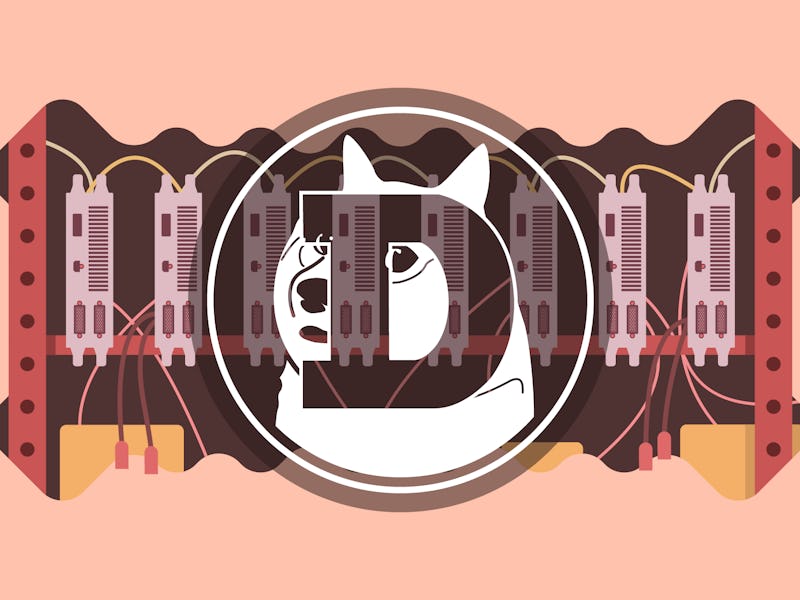Why Has the Dogecoin Price Been Rising Despite the Altcoin's Joke Origins?
Why buy an altcoin the founders invented as a joke?

Name recognition is a powerful thing, possibly powerful enough to help Dogecoin — the doggo-inspired altcoin started as a joke — gain more than a modicum of mainstream acceptance.
This month Dogecoin became the fifth cryptocurrency or token to be accepted as a tradable asset on Robinhood, a popular trading app. As of Monday afternoon, the token is trading at $0.003513 that’s roughly a 40 percent bump from where it stood a week ago, according to CoinMarketCap.
It’s worth noting that lots of cryptocurrency adjacent assets have been having a pretty good month. Not just bitcoin or other promising implementations, but even totally non-blockchain related companies that added terminology to their name or mission statements in transparent attempts to ride the hype wave.
Dogecoin is ranked as the fifth most circulated cryptocurrency on CoinMarketCap
But the question still remains: Out of all the altcoins, why on Earth did Robinhood choose a token that was started as a joke by Australian entrepreneur Jackson Palmer in 2013? Michael Chang, a Managing Director at the blockchain-focused consultancy Wachsman and a former blockchain lead at Jeffries, tells Inverse that one allure of Dogecoin is that it’s simply easier to wrap your head around than more ambitious alternatives.
“As Robinhood is looking to establish itself as a cost-effective and reliable alternative for crypto exchanges, much like it did with traditional stock exchanges, it provides an entrance into the crypto landscape for the average investor,” says Chang. “Although Dogecoin has just two GitHub commits, it is one of the most highly transacted cryptos in the market today.”
In other words, trading platforms that put a premium on accessibility might see Dogecoin as a less intimidating way for newbie investors to get their crypto feet wet, without having to parse dense white papers filled with obscure terms. Dogecoin might be worth peanuts compared to its counterparts, but there are also more than 115 billion of the tokens in circulation. This makes it the fifth-most circulated token in the world, according to CoinMarketCap.
However, just because it’s simpler to understand or more popular than its rivals doesn’t mean that Dogecoin is here to stay. Palmer, who currently works at Adobe according to his Twitter bio, has been tongue in cheek about the Robinhood integration so far, adding a “the strangest timeline” to Robinhood’s twitter announcement of the news.
So while it might have seemed outlandish when Robinhood went with Dogecoin instead of the likes of Stellar or XRP, there may be some method to this madness. But whether a veneer of accessibility will be enough for Dogecoin to stick it out through a hypothetical crypto crash, of course, remains to be seen.